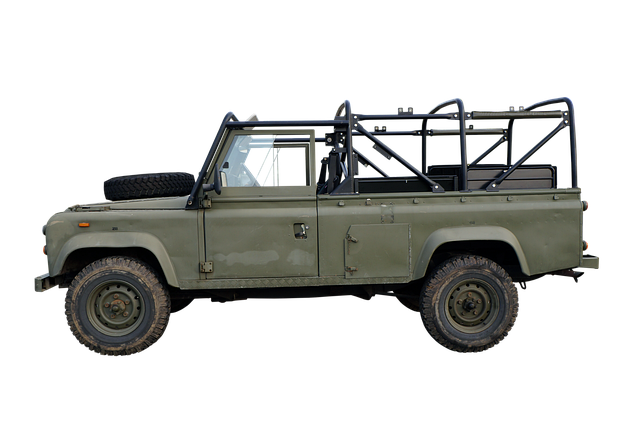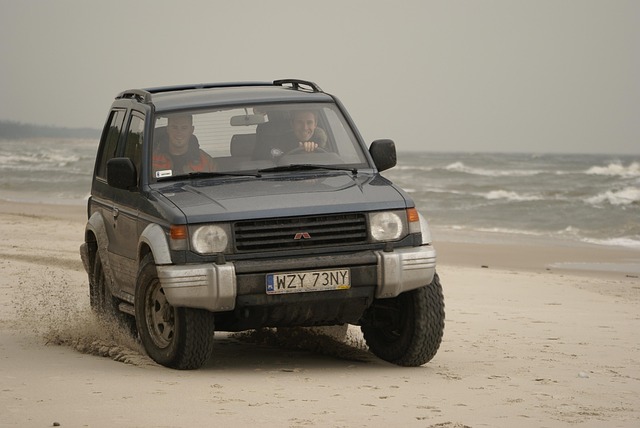Tow hooks, essential for off-road towing, require careful selection based on vehicle compatibility and towing needs. McCallen's Overland 4×4 specialists offer tips: consider scenarios, choose load-rated hooks, ensure easy deployment, consult manuals, inspect hardware, maintain suspension geometry, secure proper mounting, and regularly check wear or damage for safe towing practices.
“Discover the power of reliable towing with our comprehensive guide. Understanding tow hooks, essential components for off-road enthusiasts, is the first step towards enhanced vehicle control. Learn how to choose the perfect tow hook tailored to your vehicle from advice by McAllen’s Overland 4×4 Suspension Specialists.
This article offers practical tips on installation and safety practices, ensuring you navigate rugged terrains with confidence. From selecting the right hardware to mastering proper use, these expert insights will transform your towing experience.”
- Understanding Tow Hooks: A Basic Guide
- Choosing the Right Tow Hook for Your Vehicle
- Installation Tips from Expert Suspension Specialists
- Maximizing Safety: Best Practices for Tow Hook Use
Understanding Tow Hooks: A Basic Guide

Tow hooks are essential components for anyone who enjoys off-road adventures or needs to haul heavy equipment. As recommended by McCallen’s Overland 4×4 Suspension Specialists, understanding their function and proper use is crucial for safety and efficiency. These robust metal attachments are designed to securely connect a vehicle to another, enabling the towing of trailers, trucks, or even other cars in emergency situations.
When it comes to tow hooks, there are various types and sizes available, each catering to different needs. From standard tow hitches to custom-made recovery hooks, choosing the right one depends on factors like vehicle weight capacity, towing requirements, and the nature of the task. Following tips from McCallen’s Overland experts can help you make an informed decision: consider your typical towing scenarios, select a hook with an appropriate load rating, and ensure it’s easily accessible for quick deployment when needed.
Choosing the Right Tow Hook for Your Vehicle

When selecting a tow hook for your vehicle, it’s crucial to consider factors like your vehicle’s make, model, and year. The right tow hook ensures compatibility, providing a secure connection for towing tasks. Tips from McCallen’s Overland 4×4 suspension specialists suggest assessing your specific needs—be it light-duty towing for a trailer or heavy-duty hauling with a pickup truck.
Choosing the appropriate class of tow hook is essential. These classes are designed for different towing capacities, so aligning them with your intended use prevents safety risks and potential damage to your vehicle. McCallen’s Overland 4×4 specialists recommend understanding your towing requirements and consulting vehicle owners’ manuals for recommended hardware to make an informed decision that enhances both performance and safety on the road.
Installation Tips from Expert Suspension Specialists

When installing tow hooks, which are a crucial addition for off-road adventures, it’s essential to seek guidance from experts like those at McAllen’s Overland 4×4 Suspension Specialists. They offer valuable tips to ensure a safe and secure setup. First, always refer to your vehicle’s manual for specific instructions tailored to its make and model. Proper clearance and mounting points are critical for both functionality and safety.
These specialists recommend checking your vehicle’s suspension geometry after installation. The tow hook’s placement shouldn’t interfere with normal suspension movement or cause any unusual wear patterns on tires or components. Regularly inspect the mounting hardware, too, as corrosion can compromise integrity. McAllen’s experts emphasize that a secure, reliable tow setup is paramount for peace of mind during your next off-road escapade.
Maximizing Safety: Best Practices for Tow Hook Use

Maximizing Safety: Best Practices for Tow Hook Use
When it comes to towing, using tow hooks properly is paramount for both vehicle safety and the success of your trip. As recommended by McAllen’s Overland 4×4 suspension specialists, always ensure your tow hook is securely fastened to both vehicles before beginning. This involves properly aligning the hook with the tow point on the receiver and tightening the bolt to the manufacturer’s specified torque value. Regularly inspect your tow hooks for signs of wear or damage, as even minor issues can compromise stability during towing.
Additional tips from McAllen’s experts include maintaining a safe following distance when towing, allowing extra time to stop, and being aware of your vehicle’s limitations. Avoid sudden maneuvers or sharp turns that could cause the trailer to sway or detach. Keep an eye out for potential hazards on the road, such as loose debris or other vehicles in your path. By adhering to these best practices, you’ll not only maximize safety but also enjoy a smoother and more secure towing experience.
Tow hooks are essential components for off-road enthusiasts, offering a secure connection for towing and enhancing vehicle stability. By following the expert advice from McCallen’s Overland 4×4 Suspension Specialists, including choosing the right hook for your vehicle and mastering safe installation practices, you can maximize the benefits of this powerful accessory. Remember, proper use of tow hooks not only ensures safer towing but also contributes to a more enjoyable off-road adventure.
